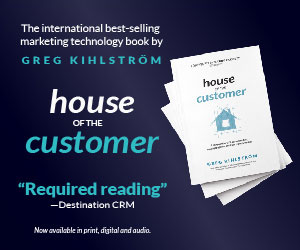Data monetization in retail refers to the process of leveraging the data collected by brick and mortar stores to generate revenue and create value. In the age of digital transformation and increasing competition from online retailers, it has become crucial for physical stores to tap into the potential of data to stay competitive and provide personalized experiences to customers.
However, collecting data in physical stores presents unique challenges that online retailers do not face. One of the main challenges is the dynamic nature of the physical retail environment. With numerous shoppers moving around in a store, accurately tracking their behavior can be difficult. RetailNext, a company specializing in in-store analytics, has invested significant resources in developing camera technology to track people as they enter and move around a store. This technology has enabled them to gather extensive data on customer behavior and preferences.
Apart from the dynamic nature of physical stores, there are also challenges related to tech outages and changes in technology. Monitoring and tracking customers over time can be affected by developments in Wi-Fi technology, such as mac randomization. Despite these challenges, significant progress has been made in identifying and understanding customer behavior in physical stores. Data monetization in retail involves using the collected data to gain insights into customer preferences, optimize store layouts, and improve the overall shopping experience. By analyzing the data, retailers can identify the most effective displays, understand what customers like and dislike, and make data-driven decisions to enhance the in-store experience.
One of the ways in which data can be monetized is through personalized marketing and targeted advertising. By analyzing customer data, retailers can create personalized offers and promotions that resonate with individual customers. This not only improves customer satisfaction but also increases the likelihood of conversion and repeat purchases. Furthermore, data monetization can also extend to partnerships and collaborations. Retailers can leverage their data to form partnerships with other businesses, such as brands or service providers, to create mutually beneficial opportunities. For example, a retailer can share data on customer preferences with a brand to develop targeted products or collaborate with a service provider to enhance the overall shopping experience. In addition to personalized marketing and partnerships, data monetization can also involve selling anonymized and aggregated data to third parties. This data can be valuable for market research, trend analysis, and predictive modeling. However, it is essential to ensure that customer privacy is protected and that data is anonymized and used in compliance with applicable regulations.
Overall, data monetization in retail offers significant opportunities for brick and mortar stores to leverage their data assets and thrive in an increasingly digital and competitive landscape. By investing in advanced analytics and technology, retailers can gain insights into customer behavior, optimize their operations, and create personalized experiences that drive customer loyalty and revenue growth. However, it is crucial for retailers to prioritize data privacy and compliance to build trust with customers and ensure the ethical use of data.
Original Source:
The Agile Brand Blog – Greg Kihlström Marketing Technology & Digital Transformation
Original URL:










